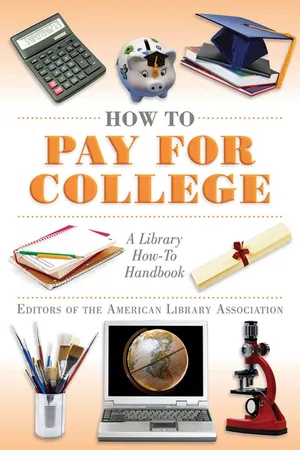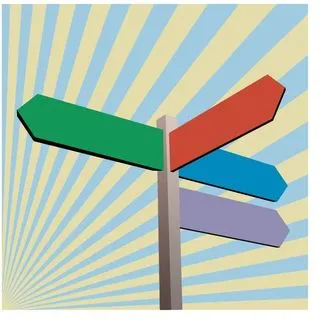I chose to go to a community college mostly because I could afford it. It was also close to my house, and I could continue to work. I looked at Alverno College in Milwaukee, but I couldn’t deal with the cost and the commute. Because of the articulation agreement in Illinois, my community college credits transferred no problem to a four-year school in the state. I started out at Northern Illinois University as a junior.
—Nancy L. McDonald, author and activist
DON’T OVERLOOK RETENTION AND GRADUATION RATES
While you’re checking out the male-to-female ratio at your chosen schools, remember to also check two other figures: retention rate and graduation rate.
The retention rate tells you what percentage of freshman come back after their first year. The graduation rate tells you what percentage of students begin as freshmen and actually graduate at the end of four years.
Both these figures can help you get a better picture of the quality of your school and how satisfied students are with the college’s programs.
—from information at CollegeBoard.com
COMPARE: BIG SCHOOLS VS. LITTLE SCHOOLS
College Toolbox: The Advantages and Disadvantages of Both Big and Small Colleges
Think you know everything there is to know about big schools and small schools? Guess again. You may be surprised by the advantages and disadvantages that the College Board found with each one. Obviously, these points don’t apply to every school.
Big Schools 101
Advantages
- ✦ There are well-known teachers and famous authors on the faculty.
- ✦ There are many majors and courses to choose from.
- ✦ You can select plenty of different living arrangements, not just dorms.
- ✦ Their big libraries contain hundreds of thousands of volumes.
- ✦ Their big-time sports programs may or may not be on ESPN.
- ✦ There is a huge variety of things to do, both social and academic.
Disadvantages
- ✦ Big-name faculty may not actually teach the classes. Their TAs will.
- ✦ Classes are held in large auditoriums.
- ✦ There are more rules and regs to keep all the students in line.
- ✦ Some faculty are more interested in their research than in undergraduates.
- ✦ It’s possible to feel as if you are invisible.
- ✦ Students who did well in high school are now pressured to be A students in college.
Little Schools 101
Advantages
- ✦ Fewer students equals smaller class size.
- ✦ Classes are taught by faculty.
- ✦ Faculty and staff get to know students well.
- ✦ There is a strong bond among students.
- ✦ You may have the chance to design your own major.
- ✦ Small classes mean more discussion and less lecturing.
Disadvantages
- ✦ There are fewer options for academic and social activities.
- ✦ Campuses have smaller buildings and fewer facilities (such as computer labs and libraries).
- ✦ There are not many opportunities to watch or play sports.
- ✦ Dorms are the only housing option.
- ✦ There is a limited number of majors and classes.
WHICH DO YOU PREFER?
Big schools and little schools both have much to offer to students. Your decision is based on which option is the best choice for you considering your career goals, your study style, and your social skills.
COLLEGE LIFE?: ASK A LIBRARIAN
If you want to know exactly what it’s like to attend Boston University in Boston or Columbia University in New York City or even DePaul in Chicago, ask your local librarian.
Reference librarians can help you and your parents find books, websites, and blogs that will spell out exactly what it’s like to spend your days at BU, Columbia, or DePaul.
Whether you go to school on the West Coast, the East Coast, or somewhere in between, your local librarians can help you find out everything you want to know about living there.
COLLEGES WITH A PARTICULAR SLANT
Maybe you don’t care so much about big schools or small schools or East Coast or West Coast. You’re looking for a different type of school, a school with a special interest.
If this is true of you, you may want to research the following types of special interest schools:
About a hundred schools across the country are still single sex. One of them might be right for you if you don’t want the distraction of the opposite sex.
A variety of colleges are affiliated with a specific religion. You can search the Internet to find colleges for your faith.
- ✦ Historically black colleges
If you are African American, attending a historically black college may be right for you if you want to be one of the majority instead of the minority. Attending a historically black college could prove to be an eye-opening experience for white students as well.
- ✦ Hispanic-serving colleges
According to the federal government, a college can be called Hispanic-serving if Hispanic students comprise 25 percent of the undergraduate students.
COLLEGE CONSIDERATIONS
Choosing a college is a huge responsibility. For that reason, it’s a good idea to take some time to think about it and to put your thoughts in order.
Although your parents are probably going to help you pay for college, the decision about where to go to school isn’t really theirs to make. It’s yours. People are correct when they say that the decision can affect the rest of your life.
However, choosing college isn’t like choosing a mate. There isn’t just one perfect college for you. There are a variety of colleges that can help you turn your dreams into reality. In addition, there are some that can do that as well as meet your other desires such as location, climate, and programs of study.
The difficulty, of course, is knowing your own mind. To choose a college, you need to know enough about yourself to know where you are likely to feel comfortable and where you will feel out of place. That doesn’t mean that you have to choose a college environment just like the environment you grew up in.
If you grew up in the suburbs, for example, you may decide that you’d like to try something completely different and think about attending school in Big Sky Country in the West. By the same token, you may decide to stray a little from your normal urban vibe and attend a prestigious college in a small town in the East. You may decide to stay right in your own town and attend the local community college for two years.
All of these are perfectly good options, and in every case you would be getting an excellent education. The difference is in what would make you happy and make you feel the most comfortable.
Use the checklist at the end of this chapter to keep track of which schools have the options that you want. The chart can also help you figure out which options are the most important to you.
Campus Visits: Find Out the Skinny on Your College with This Top Ten List
In a short campus visit, it’s difficult to know if the college will be right for you or not. To make sure that you haven’t missed anything significant during your tour, follow this top-ten checklist from the College Board.
- Wand...




